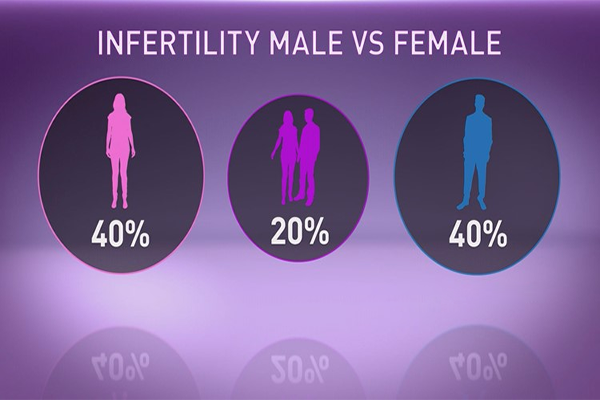How to Deal with Infertility With Ayurveda?
Ayurveda and Infertility
Ayurveda is an ancient, holistic system of medicine. It focuses on the overall health and well-being of individuals by treating diseases in a natural manner. Ayurvedic texts have clearly laid down the treatments for several diseases, and have specifically recommended the use of certain herbs or herbal formulations as well as dietary and lifestyle changes.
Infertility is a term used for describing a medical condition because of which a person is unable to contribute biologically to conception.
According to Ayurveda, conception takes place only when the sperm, the ovum, and the uterus are healthy. Reproductive health in both men and women depends on the health of the reproductive tissue or ‘Shukra dhatu.’ The creation of the tissue involves a long chain of metabolic transformations which starts with the digestion of food. These transformations include the conversion of food into nutrient fluid, blood, bone, fat, muscle, bone marrow and, ultimately, to Shukra tissue.
In men, the Shukra tissue is associated with the semen which is formed due to sexual stimulation. In women, the Shukra tissue is responsible for creating the ovum as part of the monthly menstrual cycle.
As per Ayurveda, infertility occurs when the Shukra dhatu of a man or a woman does not get adequate nutrition because of poor digestion and accumulation of toxins in the body. In addition, Ayurvedic texts have also mentioned some other reasons for infertility, such as improper diet, the intake of salty/spicy food, anxiety, depression, insomnia, excessive physical exercise, overindulgence in sex, and an imbalance of the body’s three Doshas – Vata, Pitta, and Kapha.

Ayurvedic Treatment for Infertility
Dealing with infertility issues is difficult and the affected individuals may feel frustrated and helpless at times. However, it is advised that people facing infertility issues should accept the problem, and seek help instead of blaming themselves or their partner. Ayurvedic treatment of infertility offers a ray of hope to the childless couples, recommending them to modify their diet and behaviors and use herbal supplements to increase fertility.
The key focus of Ayurvedic treatment for infertility is to ensure the food is properly transformed into nutrients that can move to the shukra dhatu. The three main Ayurvedic remedies for infertility are:
- Swedanam
Swedanam is an Ayurvedic process in which toxins are eliminated from the body by inducing sweating in patients suffering from infertility. For this process, Ayurvedic practitioners use heavy blankets and advise the patients to do specific physical exercises.
- Vamanam
Vamanam is a detoxifying therapy which induces vomiting in patients in order to eliminate the undigested food from the body. This therapy is slightly uncomfortable but is quite beneficial in managing infertility problems.
- Bark of Banyan tree
Most Ayurvedic practitioners advise patients suffering from infertility to consume the powder of dried banyan tree bark, mixed with sugar. This is considered an effective Ayurvedic remedy for infertility.
Besides, these three main remedies, Ayurvedic texts have also listed some other natural and safe home remedies for treating infertility. These remedies include:
- Intake of Foods which Nourish the Seven Dhatus
Ayurveda believes that infertility can be managed with the help of certain foods that nourish the seven Dhatus of the body. These foods include whole grains, fresh and organic fruits, and vegetables, milk and other dairy proteins, soaked walnuts or almonds, moong dal, and dried fruits like dates, raisins and figs. Moreover, people with good digestion can also eat urad dal cooked with turmeric, cumin, coriander, and fennel in equal quantities; and banana cooked in ghee, cinnamon, and cardamom.
- Intake of foods which support the reproductive tissue
The consumption of some foods can enhance the reproductive tissue or Shukra dhatu, and provide the required nutrition to the body to facilitate conception. These foods, capable of treating infertility by supporting the reproductive tissue, are broccoli, milk, date-milk shake, mango-milk shake, and spices such as ajwain, turmeric, and cumin.
- Avoid certain foods
Ayurvedic experts advise patients affected by infertility to avoid the consumption of certain foods which could be a possible cause of inadequate nutrition to the body. In particular, patients having trouble in conceiving should avoid high-fat foods, caffeine, foods that contain preservatives, and refined carbohydrates, like rice, white bread, and pasta.
- Reduce Stress levels
Mental stress and anxiety can be causative factors for infertility, so it is important to have a positive attitude. High-stress levels can have an adverse impact on health and can affect a person’s capability to make a biological contribution to conception. Stress levels can be lowered by following time-tested relaxation techniques like meditation and yoga, etc.
- Do not drink or smoke
Excessive drinking and smoking can also be the potential reasons behind infertility related problems. Ayurvedic experts advise patients suffering from infertility to limit, or totally stop, their intake of alcohol, and cut down on smoking too.
- Keep a check on weight
The chances of pregnancy can be hampered for a woman if she is either underweight or overweight because infertility in women also refers to a condition in which a woman is unable to carry a pregnancy to its full term. In the case of underweight women, the reproductive system shuts down due to the potential inability of the body to maintain a pregnancy. Meanwhile, in the case of overweight women, obesity can significantly reduce the chances of getting pregnant.
- Use of herbs
Ayurveda recommends the use of some potent herbs which are known for their ability to treat the underlying problems which may cause infertility. The herbs that are widely used in Ayurveda for their ability to treat infertility and improve reproduction health are: Ashoka (Saraca indica), Shatavari (Asparagus racemosus), Aloe vera, Guggulu (Commiphora mukul), Punarnava (Boerhaavia diffusa), Ajwain (Trachyspermum ammi), Lodhra (Symplocus racemosa), Guduchi (Tinospora cordifolia), Jivanti (Leptadenia retculata), Vacha (Acorus calamus), Shwet Jeerak (Cuminum cyminum), and Krishna Jeerak (Carum carvi).
Conclusion: Ayurveda attempts to take a healthy and wholesome approach toward the treatment of infertility. Ayurvedic treatment of the problem is a more holistic solution than conventional medicine because it is aimed at improving the health of the reproductive system, along with focusing on the psychological aspect of reproductive health. However, it is advisable to seek the guidance of an expert Ayurvedic practitioner before following the Ayurvedic remedies for infertility.




